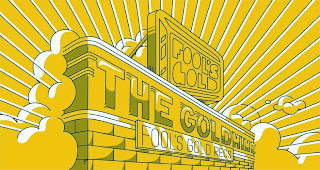Why Nations Fail, analyses economic failures. Like every other modern economics text, it analyses Zimbabwe's economic failure. According to the authors, Zimbabwe fails because the corrupt ruling elite is extracting, or taking, all the wealth and value.
Extractive forces fuel economic underdevelopment. The book is pretty convincing, however, it is overly biased in its analyses of 'underdeveloped countries'. On the other hand, it fails to identify and condemn extractive forces in the USA economy. The alliance of big finance and government is totally pushed to the side. The authors don't see the drag, and negative impact, big USA financial interest has on the US economy, the developed, even developing world.
The authors fail to call out the elephant in the room. Economics impacts politics and vice versa. Every developing country is at the mercy of US coordinated international finance markets. Rhodesia was sanctioned, so was Zimbabwe; sanctions facilitate poverty, creating an environment where corruption creates more poverty.
Developing countries are poor, but still pay higher interest rates than everyone else. Debt thus becomes more unsustainable Not to mention white elephants, studied in the book, are the result of dubious contractors lobbying poor politicians and enticing them with kickbacks. It is no secret; no financier wants developing countries to realize industrial autonomy. International economic strategy ensures countries like Zimbabwe do not realize their potential.
Zimbabwe has corruption. The authors clearly identify Zimbabwe inherited corrupt structures favoring only the 'five percent'. The authors ideas on inclusion leading institutional progression fail to identify the power of policy, and a government determined to deliver industrial development. Historically, these are governments that refuse to depend on aid but facilitate industrial self-sufficiency. Nations fail when they do not industrialize enough and have to depend on other nations. Nations fail when international loans become the only source of income. These failures are part and parcel of a corrupt multinational finance system. It is this system that allows corrupt leaders to squirrel stolen aid abroad. This book completely overlooks the whole financially corrupt international finance system.
Both domestic and international corruption have played a part in Zimbabwe's economic failure. The local elites are doing their bit for the international elites who benefit most from Zimbabwe's failure.










































